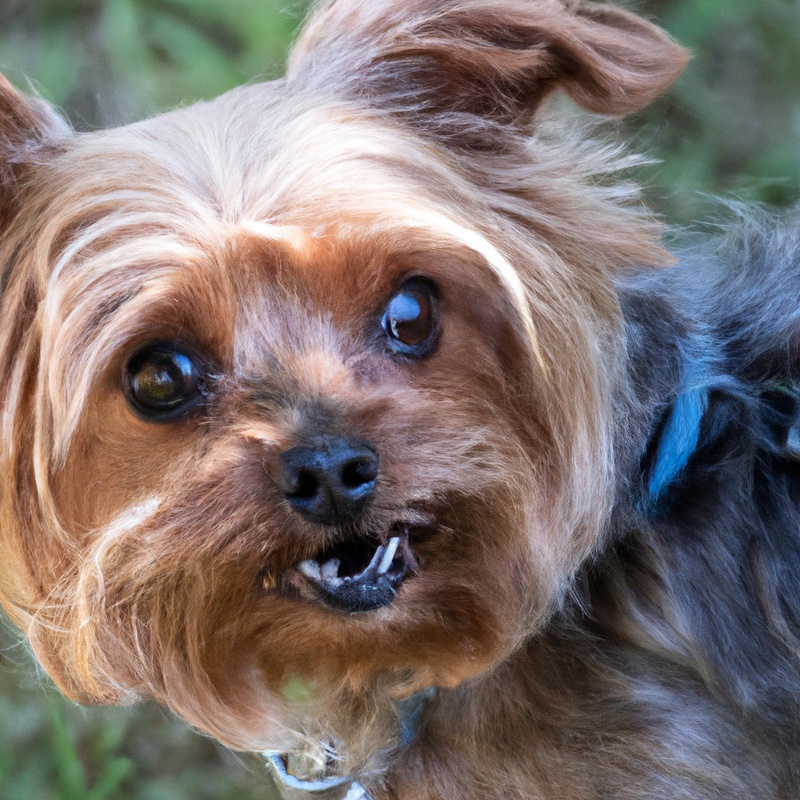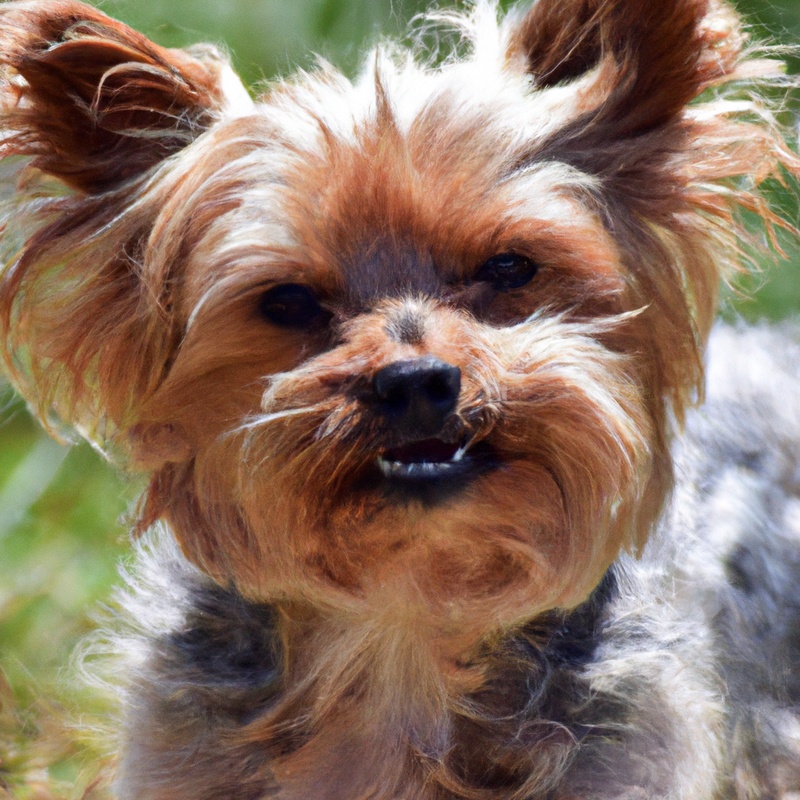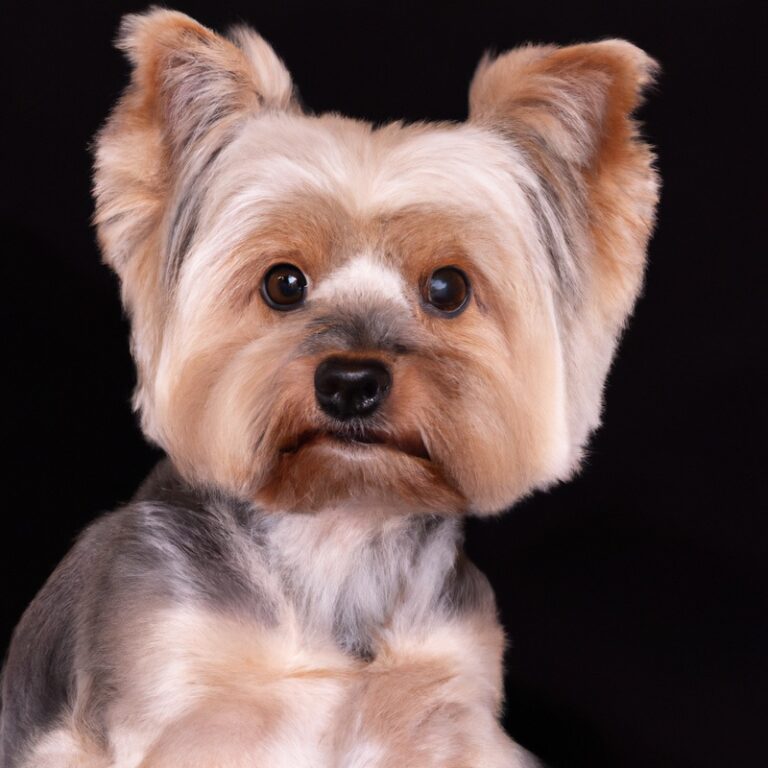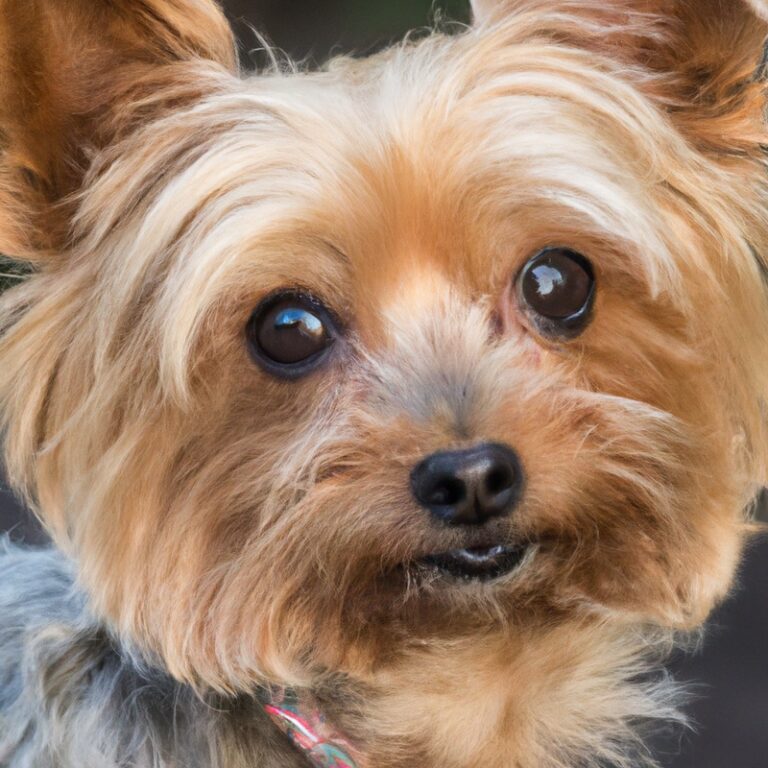How Do I Handle Separation Anxiety In My Yorkshire Terrier?
Key Takeaways:
- Gradual desensitization and counterconditioning techniques can help manage separation anxiety in Yorkshire Terriers.
- Creating a safe and comfortable environment for your Yorkshire Terrier can alleviate separation anxiety symptoms.
- Engaging in regular exercise and mental stimulation can reduce separation anxiety in Yorkshire Terriers.
- Seeking professional help, like a certified dog behaviorist, can provide effective strategies for managing separation anxiety in Yorkshire Terriers.
Are you constantly worried about leaving your Yorkshire Terrier alone? Does your little bundle of fur exhibit signs of distress when you’re not around?
Well, you’re not alone.
Separation anxiety is a common issue among Yorkshire Terriers, and it can be a challenging experience for both you and your precious pup. But fear not! As an experienced dog lover and owner myself, I’m here to guide you through this journey of understanding and managing separation anxiety in your Yorkshire Terrier.
From recognizing the signs to implementing effective coping strategies, this article will equip you with the knowledge and tools you need to help your beloved companion feel more secure and calm when you’re not by their side.
So, let’s dive in and ensure that your furry friend is living their best, anxiety-free life!
| Causes | Symptoms | Tips for handling separation anxiety | |
| 1. | Change in routine | Pacing, excessive barking, destructiveness | Stick to a consistent routine, gradually increase time apart |
| 2. | Past traumatic experience | Whining, trembling, urinating indoors | Provide a safe and secure environment, use positive reinforcement |
| 3. | Lack of socialization | Excessive salivating, not eating | Gradually introduce new people, animals, and environments |
| 4. | Over-attachment to owner | Howling, scratching at doors/windows | Encourage independence, use interactive toys |
Understanding Separation Anxiety in Yorkshire Terriers
What is Separation Anxiety?
Separation anxiety is a common behavioral issue that dogs, including Yorkshire Terriers, may experience when they are separated from their owners or left alone. It’s important to understand that dogs are social animals and thrive on companionship.
Separation anxiety can manifest in various ways, such as excessive barking, destructive behavior, house soiling, and pacing.
This condition can cause distress to your Yorkshire Terrier and may require attention and training to address. It’s essential to be patient and compassionate when helping your dog cope with separation anxiety.
Signs of Separation Anxiety in Yorkshire Terriers
Signs of Separation Anxiety in Yorkshire Terriers So, you suspect your Yorkshire Terrier might be suffering from separation anxiety? It’s important to recognize the signs so you can address the issue and help your furry friend feel more calm and secure when you’re away.
Here are some common signs of separation anxiety in Yorkshire Terriers:
- Excessive barking or howling: If your Yorkshire Terrier is barking or howling excessively as soon as you leave the house, it could be a sign of separation anxiety.
- Destructive behavior: If you come home to find your furniture, shoes, or other household items destroyed, it could be a result of your Yorkie’s anxiety and stress from being left alone.
- Escaping attempts: Yorkshire Terriers with separation anxiety may try to escape from their confinement, whether it’s through scratching at doors or windows, digging, or attempting to squeeze through small spaces.
- Potty accidents: Your well-trained Yorkie suddenly having accidents indoors when left alone could be a sign of anxiety-related potty accidents.
- Pacing or restlessness: If your Yorkshire Terrier is excessively pacing, whining, or seems unable to settle down when you’re not around, it could be a manifestation of separation anxiety.
Remember that every dog is unique, and the signs of separation anxiety can vary. If you notice these signs or suspect your Yorkshire Terrier has separation anxiety, it’s essential to seek guidance from a veterinarian or professional dog behaviorist who can offer tailored advice and support.

Causes of Separation Anxiety in Yorkshire Terriers
Separation anxiety in Yorkshire Terriers can be caused by a variety of factors. Here are a few common causes to consider:
- Lack of socialization: If a Yorkshire Terrier hasn’t been exposed to different people, animals, and environments from a young age, they may develop anxiety when separated from their familiar surroundings.
- Traumatic experiences: Yorkshire Terriers that have experienced traumatic events, such as a change in ownership or being abandoned, may be more prone to separation anxiety.
- Over-attachment: Yorkshire Terriers are known to form strong bonds with their owners. If they become overly dependent and reliant on their human companions, they may struggle when left alone.
- Changes in routine: Dogs are creatures of habit, and sudden changes in their daily routine, such as a new work schedule or a move to a different home, can trigger separation anxiety.
- Pre-existing anxiety or fearfulness: Some Yorkshire Terriers may have a naturally anxious or fearful temperament, which can predispose them to separation anxiety.
Managing Separation Anxiety in Yorkshire Terriers
Establish a Consistent Routine
Establishing a consistent routine is essential when it comes to managing separation anxiety in Yorkshire Terriers. By setting up a regular schedule for meals, exercise, and playtime, you can create a sense of predictability and stability for your furry friend.
First and foremost, make sure to establish a specific time for feeding your Yorkshire Terrier and stick to it every day.
This will help them anticipate when they will receive their meals, reducing their anxiety. Additionally, schedule daily exercise and play sessions to keep them active and engaged.
By incorporating a consistent routine into your dog’s life, you can help alleviate their separation anxiety and create a calmer and more relaxed environment for them.
Gradually Increase Alone Time
When it comes to addressing separation anxiety in your Yorkshire Terrier, one crucial aspect to consider is gradually increasing their alone time. This means slowly getting them accustomed to being by themselves in a safe and comfortable environment.
By incorporating small increments of alone time, you can help your furry friend build confidence and learn that being alone is not a negative experience.
Start with short periods of separation and gradually lengthen them over time. Remember to provide stimulating toys and create a calm atmosphere to help ease their anxiety.
Provide Mental Stimulation
One of the key factors in managing separation anxiety in Yorkshire Terriers is providing them with ample mental stimulation. Dogs, especially intelligent breeds like Yorkshire Terriers, need mental stimulation to keep their minds occupied and prevent boredom.
Here are some ways you can provide mental stimulation for your Yorkshire Terrier:
- Puzzle toys: Invest in puzzle toys that require your dog to figure out how to get treats or toys out of them. This engages their problem-solving skills and keeps them mentally active.
- Interactive games: Play games with your dog that involve problem-solving, such as hide-and-seek or finding hidden treats. This not only keeps them mentally stimulated but also helps build their confidence.
- Training sessions: Regular training sessions not only enhance your dog’s obedience skills but also provide mental stimulation. Teach them new tricks or reinforce existing commands to keep their minds active.
- Scent work: Yorkshire Terriers have a keen sense of smell, so engaging them in scent work activities can provide mental stimulation. Hide scented objects or treats around the house and encourage your dog to find them using their nose.
- Rotating toys: Provide a variety of toys for your Yorkshire Terrier and rotate them regularly to keep their interest piqued. New toys and different textures can provide mental stimulation and prevent boredom.

Use Positive Reinforcement
When it comes to managing separation anxiety in Yorkshire Terriers, using positive reinforcement is a key approach. By incorporating positive reinforcement techniques, you can help your furry friend feel more secure and relaxed when you’re away.
This involves rewarding your dog for calm behavior and gradually increasing the time you spend apart.
By implementing positive reinforcement, you can help your Yorkshire Terrier develop a positive association with being alone, making their anxiety more manageable over time. Remember to be patient and consistent in your training efforts, and seek guidance from a professional if needed.
Utilize Interactive Toys and Treats
Utilizing interactive toys and treats is a great way to help manage separation anxiety in your Yorkshire Terrier. When you’re not around, these toys and treats can provide mental stimulation and keep your furry friend entertained.
First and foremost, look for interactive toys that require your dog to think and problem solve.
This can include puzzle toys, treat-dispensing toys, or toys that make noise. These toys will keep your dog occupied and distract them from feeling anxious.
In addition to toys, consider using treat puzzles or interactive feeding toys.
These toys require your Yorkshire Terrier to work for their food, keeping them engaged and focused. They can provide a fun and rewarding experience for your pet while you’re away.
Remember to choose toys and treats that are safe for your dog and to supervise them while they play.
You want to ensure they don’t choke on small parts or ingest anything harmful. By incorporating interactive toys and treats into your Yorkshire Terrier’s routine, you can help alleviate their separation anxiety and provide a positive, engaging experience while you’re away.
Tips for Creating a Safe Environment
Create a Comfortable Space
Creating a comfortable space for your Yorkshire Terrier is essential in helping them feel secure and relaxed when you’re not around. First and foremost, choose a designated area in your home where your furry friend can retreat to when they need some alone time.
This space should be quiet, cozy, and away from any noise or commotion.
Make sure to provide your Yorkshire Terrier with a comfortable bed or crate where they can curl up and rest. A soft blanket or cushion can add extra comfort.
Additionally, consider leaving an article of clothing with your scent nearby, as it can provide a sense of familiarity and comfort for your pup.
It’s also important to ensure that the temperature is appropriate for your Yorkshire Terrier’s comfort. Keep the room well-ventilated and at a comfortable temperature to prevent them from becoming too hot or too cold.
Providing plenty of toys and interactive puzzles can help keep your Yorkshire Terrier entertained and mentally stimulated while you’re away.
These distractions can also help alleviate any anxiety or boredom they may experience in your absence. Lastly, try leaving some soothing background noise, such as soft music or a white noise machine, to provide a calming effect for your Yorkshire Terrier.
Use Calming Aids
You can use calming aids to help ease your Yorkshire Terrier’s separation anxiety. Some effective options include:
- Thundershirt: This snug-fitting garment applies gentle pressure and can help your Yorkie feel more secure during times of stress.
- Adaptil or Comfort Zone: These plug-in diffusers release pheromones that mimic the comforting scent of a mother dog, helping to calm your pup.
- Anxiety wraps: These wraps, like the Anxiety Wrap or the TTouch wrap, provide gentle pressure and can help alleviate anxiety.
- Calming treats or supplements: Look for products that contain ingredients like chamomile, ginger, or L-theanine, which can have a calming effect on your dog.
Remember to consult with your veterinarian to ensure the chosen calming aids are safe for your Yorkshire Terrier and to get additional recommendations tailored to your dog’s specific needs.

Minimize Triggers
Minimizing triggers is essential when dealing with separation anxiety in your Yorkshire Terrier. The goal is to create a calm and stress-free environment for your furry friend.
Here are a few tips to help you minimize triggers:
- Establish a routine: Dogs thrive on predictability, so establishing a consistent daily routine can help reduce anxiety. Stick to regular feeding, exercise, and playtime schedules.
- Gradually increase alone time: Start by leaving your Yorkshire Terrier alone for short periods and gradually increase the duration over time. This helps them get used to being on their own and reduces anxiety.
- Provide a safe space: Create a designated area in your home where your dog feels safe and comfortable. This could be a well-padded crate or a cozy corner with their favorite toys and blankets.
- Use positive reinforcement: Reinforce positive behavior by rewarding your Yorkshire Terrier when they remain calm during separation. Give them treats, praise, or engage in a fun activity together.
- Use calming techniques: Consider using calming aids such as soothing music, pheromone diffusers, or anxiety wraps. These can help create a calming atmosphere and reduce stress.
Consider Crate Training
Consider crate training as a helpful method to address separation anxiety in your Yorkshire Terrier. It can provide a safe and cozy space for your dog, mimicking a den-like environment.
Firstly, choose the right crate size to ensure your Yorkie has enough room to stand, turn around, and lie down comfortably.
Secondly, gradually introduce your dog to the crate by making it a positive and pleasant place. Use treats, toys, and praise to create a positive association.
Finally, start with short periods of crate time and gradually increase the duration as your dog becomes more comfortable.
Seek Professional Help
Sometimes, handling separation anxiety in your Yorkshire Terrier can be a challenging task. If you’ve tried various strategies, but your furry friend is still struggling, seeking professional help is worth considering.
A professional dog trainer or a veterinarian experienced in behavior issues can provide valuable guidance and support.
They can assess your dog’s specific situation and develop a personalized plan to alleviate their anxiety.
Coping Strategies for Owners
Stay Calm and Patient
When dealing with separation anxiety in your Yorkshire Terrier, staying calm and patient is essential. Your dog looks up to you as their leader, and they can pick up on any signs of stress or anxiety from you.
So, the first thing you should do is take a deep breath and stay calm.
Remember, your dog’s anxious behavior is not their fault, but rather a symptom of their anxiety. Patience is also key when helping your Yorkshire Terrier cope with separation anxiety.
Overcoming this issue takes time and consistency.
Some days may be better than others, but it’s important to remain patient throughout the process. Understand that your dog is going through a difficult time, and progress may be slow.
Avoid getting frustrated or losing hope.
Instead, focus on providing your dog with reassurance and positive reinforcement. Gradually expose them to short periods of alone time and reward them for calm behavior.
By staying calm and patient, you create a safe and secure environment for your Yorkshire Terrier to overcome their separation anxiety.
Practice Self-Care
Practice self-care to take care of yourself while managing your Yorkshire Terrier’s separation anxiety. It’s important to prioritize your own well-being so that you can better support your furry friend.
Here’s how you can practice self-care:
- Set boundaries: Allow yourself time and space for relaxation and personal activities. It’s okay to take breaks and have alone time.
- Seek support: Reach out to friends, family, or online communities who understand what you’re going through. Sharing your experiences and seeking advice can be helpful.
- Maintain a routine: Establish a daily routine that includes time for yourself. This could be a morning walk, reading a book, or listening to soothing music. Stick to the routine as much as possible.
- Practice mindfulness: Engage in activities that help you stay present and reduce stress. This could include meditation, deep breathing exercises, or yoga.
- Stay physically active: Regular exercise not only benefits your physical health but also improves your mental well-being. Go for walks, engage in a workout routine, or play a sport you enjoy.
- Take breaks: Give yourself regular breaks from the responsibility of caring for your Yorkshire Terrier. Consider asking a trusted friend or family member to look after your dog for a few hours while you relax and recharge.
Socialize Your Yorkshire Terrier
Socializing your Yorkshire Terrier is key to raising a well-adjusted and happy pup. The earlier you start socializing, the better.
First and foremost, expose your Yorkie to different people, places, and situations from a young age.
This will help them become comfortable in various environments. Take your furry friend for walks in the park, introduce them to other friendly dogs, and invite friends over to interact with them.
Additionally, enrolling your Yorkie in puppy classes can be a great way to socialize them.
These classes allow your pup to interact with other dogs and learn how to behave in a controlled environment. It’s important to remember that socialization is an ongoing process.
Keep exposing your Yorkie to new experiences throughout their life, and they will become more confident and adaptable.
Ask for Support
Ask for Support When dealing with separation anxiety in your Yorkshire Terrier, it’s important to remember that you don’t have to face it alone. Asking for support can make a big difference in how you handle the situation.
Reach out to friends, family, or even online communities of dog owners who have dealt with similar issues.
They can offer valuable advice, share their experiences, and provide emotional support.
Follow Professional Advice
When it comes to dealing with separation anxiety in your Yorkshire Terrier, it’s essential to follow professional advice. Seek guidance from a reputable veterinarian or animal behaviorist who specializes in dog anxiety.
They have the knowledge and experience to provide you with specific strategies and techniques tailored to your Yorkshire Terrier’s needs.
By following professional advice, you can gain valuable insights into the causes of separation anxiety and learn effective management techniques. They may suggest gradual desensitization exercises, crate training, or the use of calming tools like puzzle toys or pheromone diffusers.
Additional Resources for Dealing with Separation Anxiety
Books and Guides
If you’re looking for more information on how to handle separation anxiety in your Yorkshire Terrier, there are some great books and guides out there that can help. Here are a few recommendations:
- “The Dog Separation Anxiety Workbook” by James O’Heare: This comprehensive guide offers step-by-step exercises to help your Yorkshire Terrier overcome separation anxiety. It provides practical strategies and tips for preventing and managing separation anxiety in a positive and effective way.
- “I’ll Be Home Soon! How to Prevent and Treat Separation Anxiety” by Patricia B. McConnell: Dr. McConnell, a renowned animal behaviorist, offers valuable insights and tips for understanding and treating separation anxiety in dogs. This book provides a deeper understanding of the problem and offers practical solutions.
- “Treating Dog Separation Anxiety with Good Sense and Good Will” by Karen L. Overall: Dr. Overall provides a holistic approach to treating separation anxiety, incorporating behavior modification techniques, medication, and environmental changes. This guide offers valuable advice on creating a supportive environment for your Yorkshire Terrier.
Online Community and Forums
If you’re dealing with separation anxiety in your Yorkshire Terrier, a great resource to turn to is online communities and forums dedicated to pet owners. These online platforms provide a space where you can connect with other Yorkshire Terrier owners who have experienced or are currently dealing with separation anxiety in their dogs.
Here, you can share your concerns, ask for advice, and learn from others who have been through similar situations.
Online communities and forums are a fantastic way to find support, guidance, and practical tips to help you and your Yorkshire Terrier navigate separation anxiety together.
Professional Dog Trainers and Behaviorists
Professional dog trainers and behaviorists are invaluable resources when it comes to dealing with separation anxiety in your Yorkshire Terrier. They have the knowledge and expertise to help you understand the root causes of your dog’s anxiety and provide effective techniques to address it.
By working with a professional, you’ll receive personalized guidance tailored to your specific dog and situation.
They can teach you how to gradually desensitize your Yorkshire Terrier to being alone, establish a routine, and provide mental stimulation to alleviate their anxiety.
Support Groups and Workshops
Support groups and workshops are valuable resources for tackling separation anxiety in Yorkshire Terriers. These settings provide a supportive and understanding community where you can share experiences, gain insights, and receive helpful advice from others facing similar challenges.
Being part of a support group allows you to express your concerns and frustrations, while also receiving encouragement and guidance.
Workshops, on the other hand, often offer specialized training and strategies to help you address your Yorkie’s separation anxiety more effectively. Both support groups and workshops can provide you with the knowledge, tools, and emotional support needed to navigate through this difficult time.
Yorkie-Specific Rescue Organizations
Yorkie-Specific Rescue Organizations are a great resource for anyone dealing with separation anxiety in a Yorkshire Terrier. These organizations specialize in rescuing and rehabilitating Yorkies, and they have a wealth of knowledge and experience in dealing with behavioral issues like separation anxiety.
They can offer advice, support, and even training resources to help you and your Yorkie overcome this challenge.
Reach out to these rescue organizations for guidance and assistance in managing separation anxiety in your furry friend.
Final Verdict
Understanding and managing separation anxiety in Yorkshire Terriers is essential for both the well-being of your beloved pet and your peace of mind. By recognizing the signs and causes of separation anxiety, you can implement effective strategies such as establishing a consistent routine, gradually increasing alone time, providing mental stimulation, and utilizing positive reinforcement.
Creating a safe environment, practicing coping strategies, and seeking professional help when needed are also crucial.
Remember, dealing with separation anxiety requires patience, self-care, and support. Trust in the resources available, and you can navigate this challenge with confidence.







